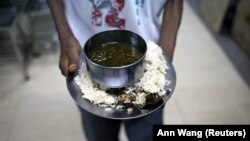Armed conflict, along with economic and political instability, are a proven recipe for food insecurity. It is therefore no surprise that strife, triggered by the February 2021 ousting of Burma’s civilian government by the military, has caused a significant rise in humanitarian needs countrywide. Burma’s poor and worsening economy, wide-spread poverty, internal displacement, and the COVID-19 pandemic, have exacerbated the situation.
According to the Humanitarian Needs Overview, recently released by the United Nations, more than 17 million people across Burma, nearly one third of the country’s population, are in need of humanitarian assistance this year, compared with less than one million in 2020. This means that nearly one in three Burmese people, particularly those who live in conflict zones, are not able to secure sufficient amounts of safe, nutritious food for their day-to-day needs. Women, girls, elderly people, and persons with disabilities, as well as minorities, are hardest hit.
Malnutrition poses a particular problem for pregnant and lactating women, as well as for children, especially kids under the age of five. That’s because women’s bodies need more nutrition to support pregnancy, and exclusive breastfeeding during the first six months of an infant’s life, while plentiful and high-quality nutrition is necessary for the typically rapid growth of children’s bodies and brains.
This means that improving the nutrition of young children and lactating mothers, as well as mothers-to-be, helps prevent developmental problems in children, such as stunting, poor brain development, difficulty in learning, low immunity to disease, and increased rates of infections, according to UNICEF.
That is why the U.S. Agency for International Development, or USAID, is providing an additional $50 million in humanitarian aid for emergency food and nutrition assistance in Burma. USAID will collaborate with the United Nations World Food Program to treat and prevent malnutrition in conflict-affected states, benefiting more than 750,000 people. These funds will be used to provide, among others, monthly food rations, as well as nutrition commodities for children under five, and pregnant and lactating women.
Children who eat poorly, live poorly; and that bodes ill for any country’s future. The United States remains committed to providing immediate and emergency life-saving support to people in need throughout Burma, and commends those working peacefully towards an inclusive and democratic future for the people of Burma.














